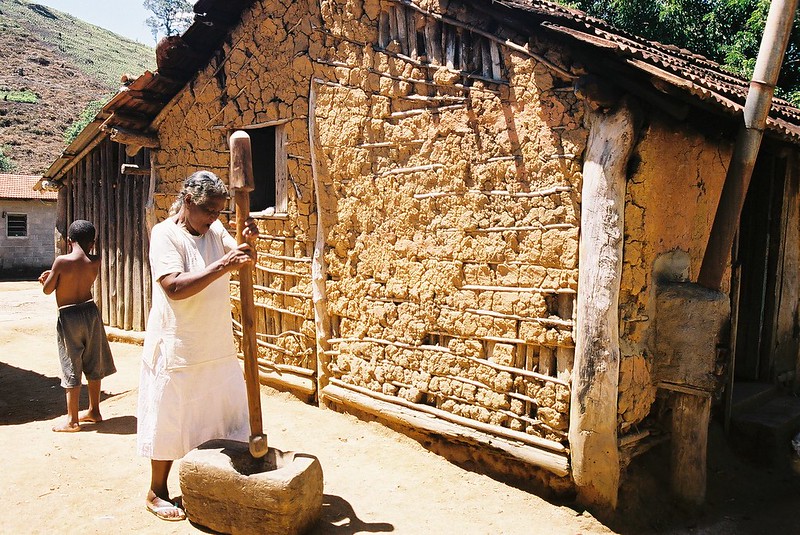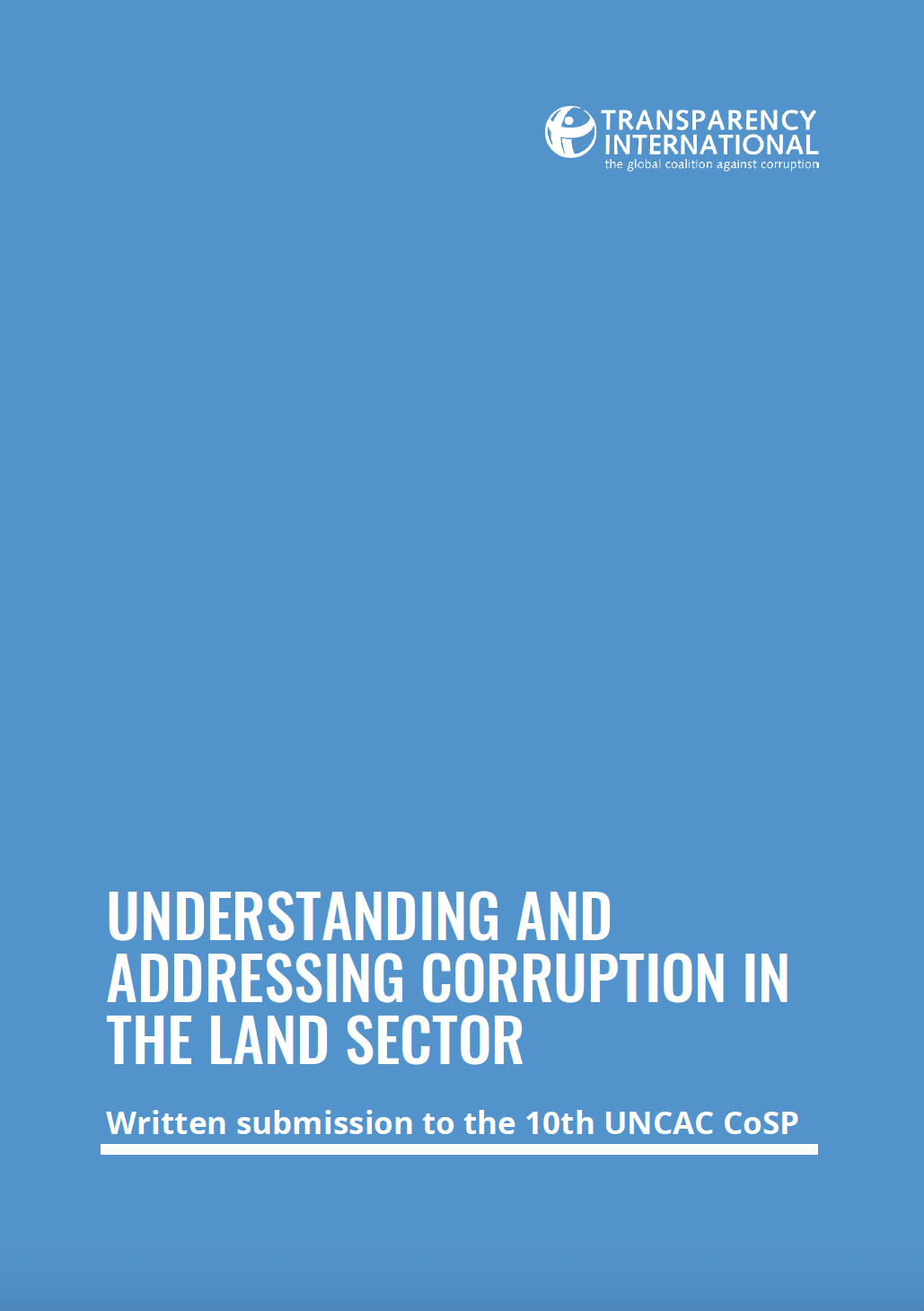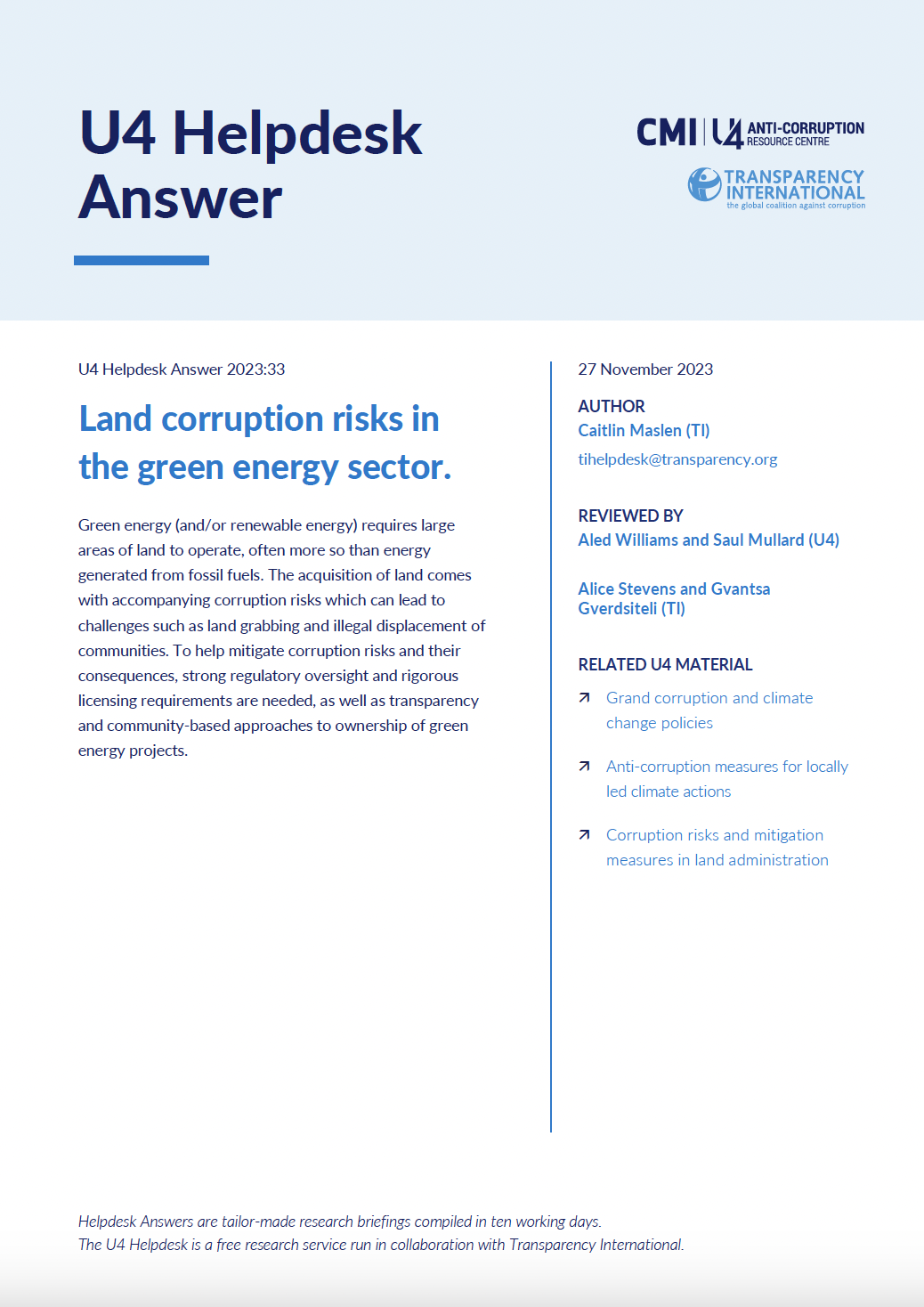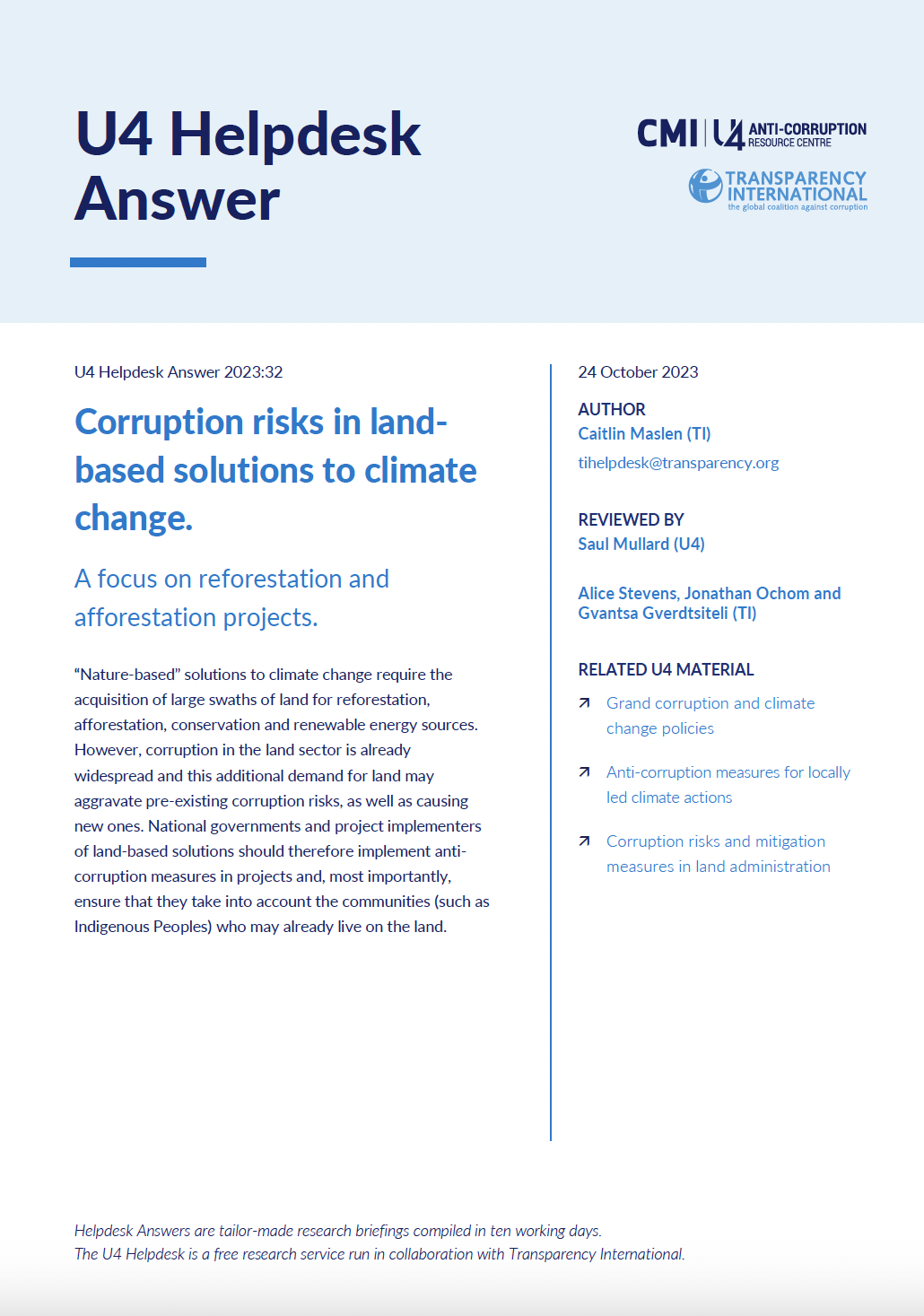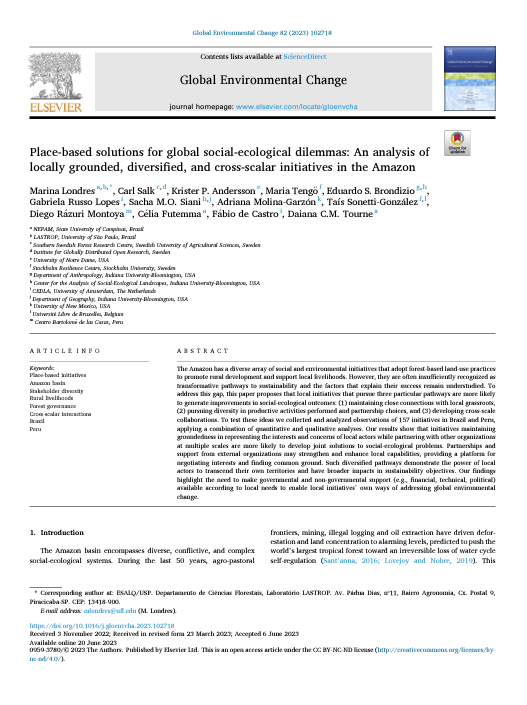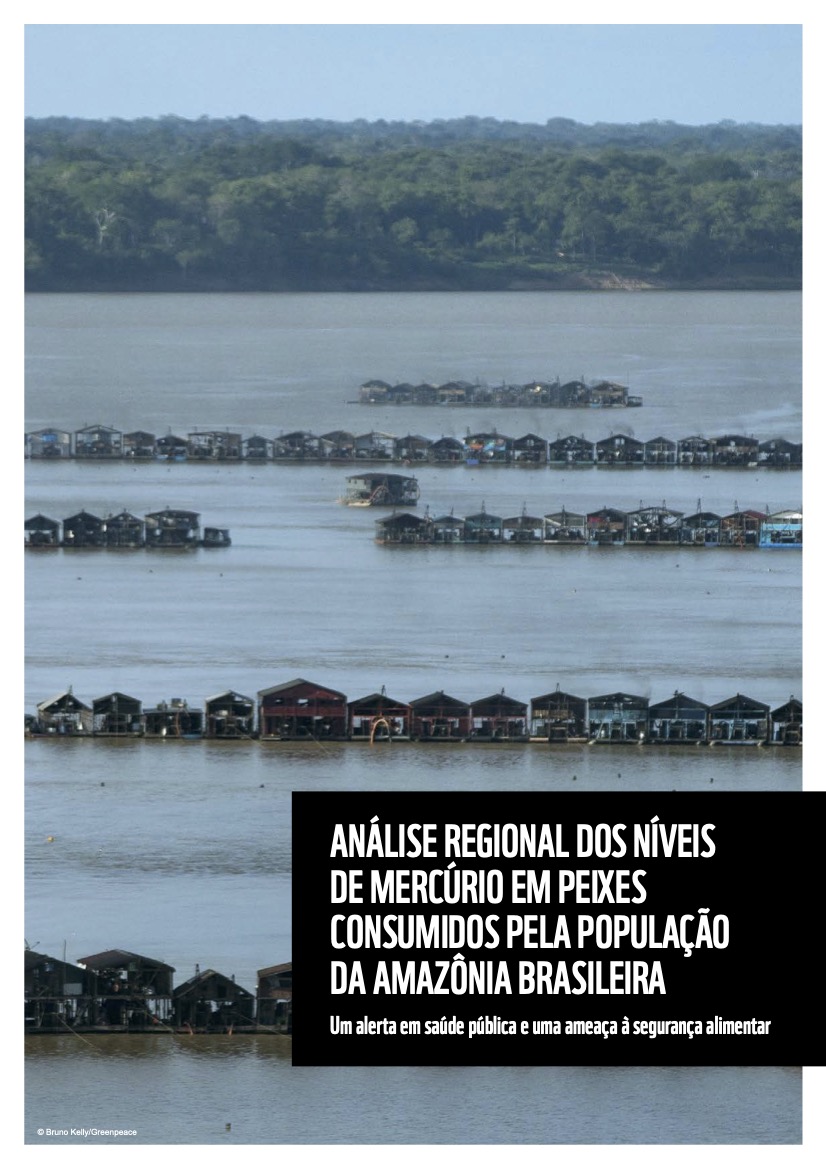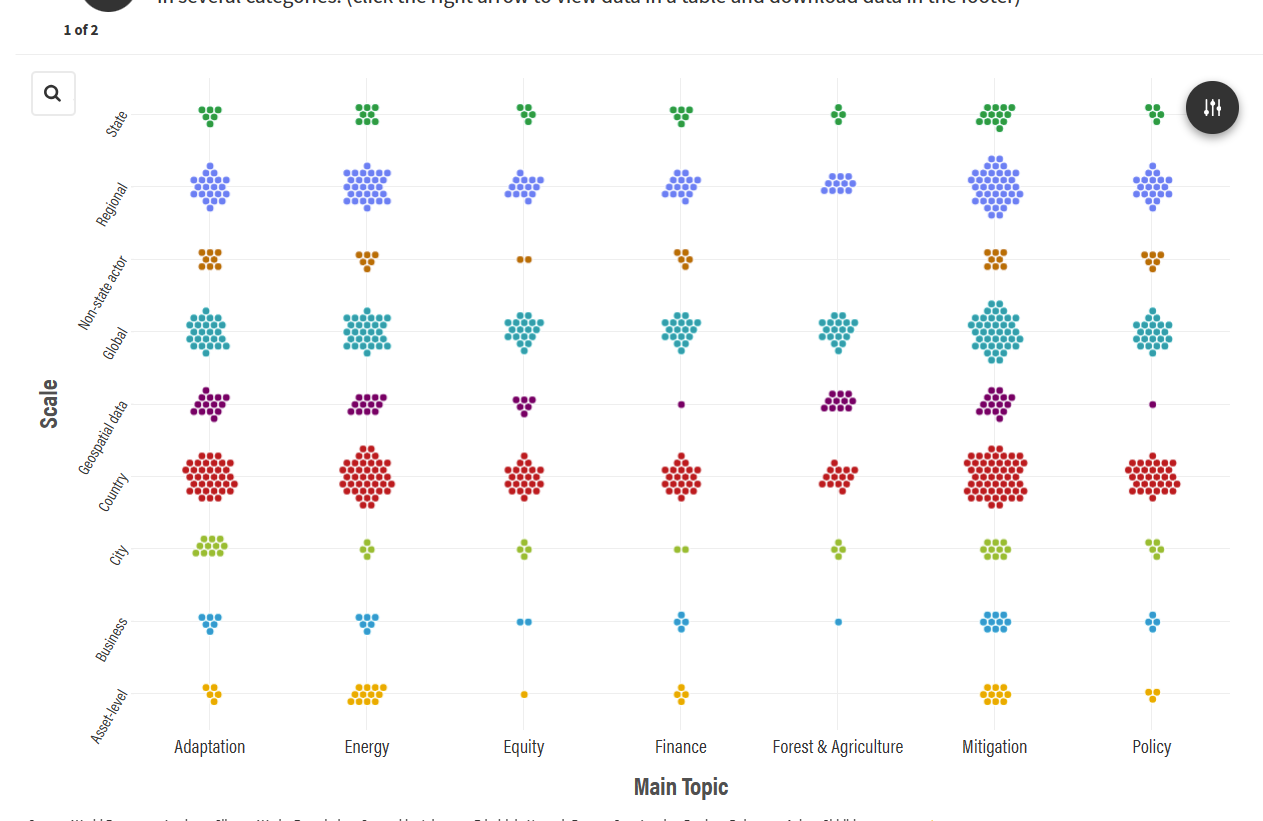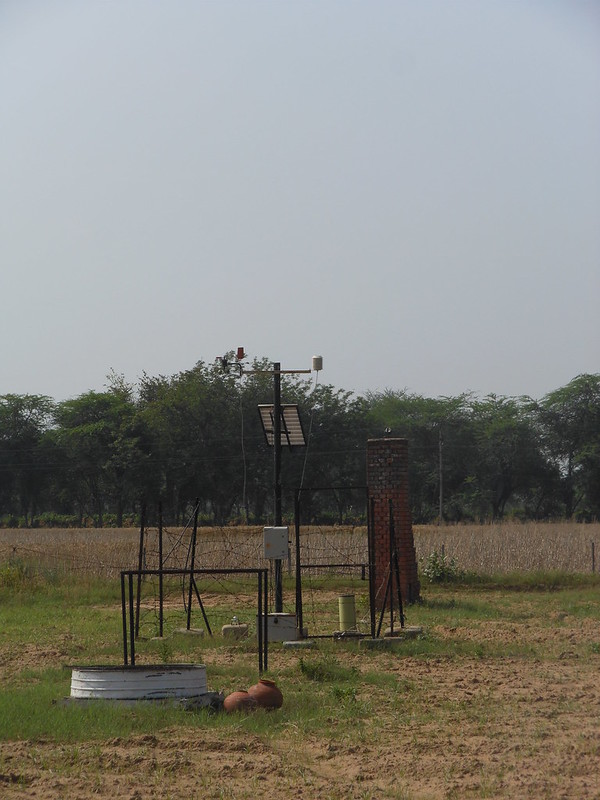Stakeholder mapping for climate change action in Tajikistan
Central Asia is highly vulnerable to climate change threats, which have negatively impacted both humans and wildlife. Tajikistan, one of the least urbanized countries in the region, is prone to natural disasters, disruptions in rainfall, growing temperatures, reductions in glacial cover, and extreme weather events (Zoï Environment Network 2020; Green Climate Fund [GCF] 2020).
As pressões ambientais nos territórios quilombolas no Brasil.
Understanding and Addressing Corruption in the Land Sector
Land corruption – corrupt practices in the land sector – threatens the lives and livelihoods of people and communities, the environment and climate, food security and political stability. Its impacts are particularly acute for 2.5 billion people who live on and from the land. Addressing it requires a dedicated focus and assessment of land related institutions across different national contexts.
Land corruption risks in the green energy sector
Green energy (and/or renewable energy) requires large areas of land to operate, often more so than energy generated from fossil fuels. The acquisition of land comes with accompanying corruption risks which can lead to challenges such as land grabbing and illegal displacement of communities. To help mitigate corruption risks and their consequences, strong regulatory oversight and rigorous licensing requirements are needed, as well as transparency and community-based approaches to ownership of green energy projects.
Corruption risks in land-based solutions to climate change
“Nature-based” solutions to climate change require the acquisition of large swaths of land for reforestation, afforestation, conservation and renewable energy sources. However, corruption in the land sector is already widespread and this additional demand for land may aggravate pre-existing corruption risks, as well as causing new ones.
Place-based solutions for global social-ecological dilemmas:
The Amazon has a diverse array of social and environmental initiatives that adopt forest-based land-use practices to promote rural development and support local livelihoods. However, they are often insufficiently recognized as transformative pathways to sustainability and the factors that explain their success remain understudied.
Dossiê interfaces da criminalização indígena.
A publicação analisa cinco proposições legislativas relacionadas ao terrorismo, que facilitam ou estimulam a criminalização do movimento indígena no Brasil, associando movimentos sociais à desordem, ao crime e ao terrorismo.
Análise regional dos níveis de mercúrio de mercurio em peixes consumidos pela população da Amazônia brasileira
A ciência tem mostrado nas últimas décadas que a conta- minação por mercúrio (Hg) é um problema ambiental e de saúde pública. Uma importante fonte poluidora é o garim- po ilegal de ouro, que vem crescendo vertiginosamente, deixando um rastro de destruição. Outras atividades rea- lizadas por seres humanos, incluindo o desmatamento, a queimada de florestas e a construção de hidrelétricas, au- mentam os níveis de contaminação por mercúrio em cor- pos d’agua e no ambiente.
Overview of 100+ Climate Data Platforms
Overview map of 100+ Climate Data Platforms. Each dot represents a platform in this category. A single platform can appear in several categories. (click the right arrow to view data in a table and download data in the footer)
Social Innovation Perspective of Community-Based Climate Change Adaptation: A Framework-Based Study of Ladakh, India
Indigenous knowledge of local environments is crucial for developing innovative and contextual climate change adaptation strategies. Although the significance of community-led efforts based on this knowledge has been well acknowledged, they have not been effectively incorporated into mainstream development processes. The mountainous region of Ladakh presents a novel case of water storage in the form of ice reservoirs as an adaptive strategy against intensified water scarcity.
Informe del Primer Foro Anual sobre Defensoras y Defensores de los Derechos Humanos en Asuntos Ambientales de América Latina y el Caribe
El primer foro anual sobre defensoras y defensores de derechos humanos en asuntos ambientales en América Latina y el Caribe se realizó en Quito los días 22 y 23 de noviembre de 2022. El foro fue convocado por la CEPAL en calidad de Secretaría del Acuerdo de Escazú, en alianza con el PNUMA, el ACNUDH y el Gobierno de Ecuador y con el apoyo del Fondo Fiduciario de Derechos Humanos, Inclusión y Empoderamiento del Banco Mundial.


